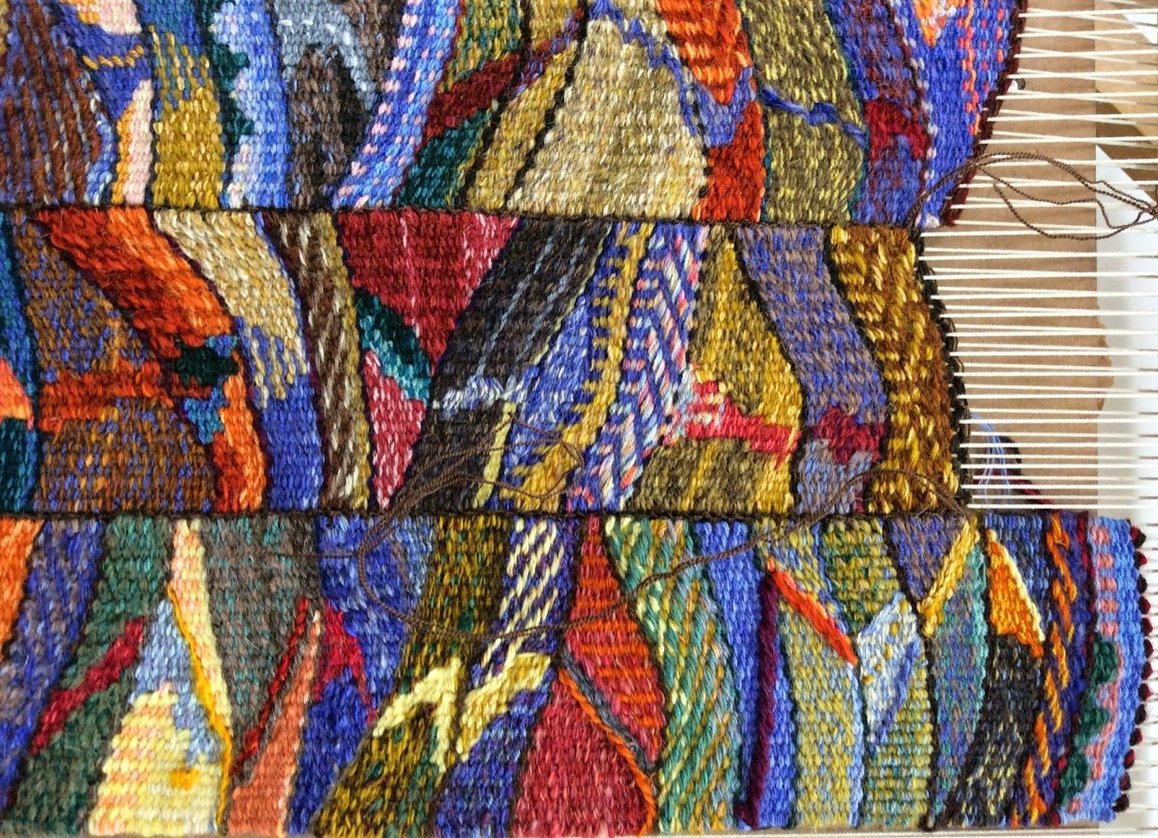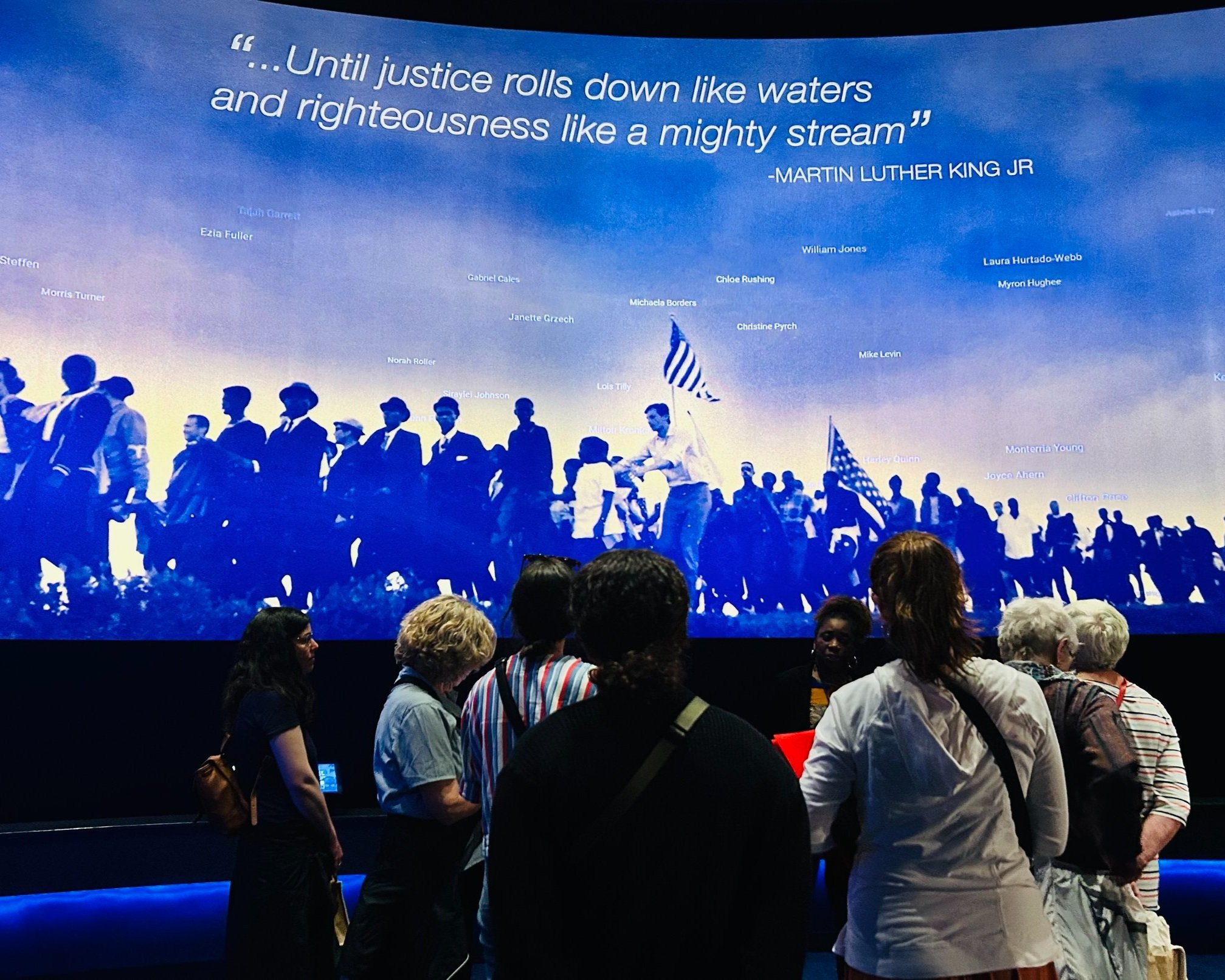
Tapestry
A space for White women to explore how their identities have intersected with power structures that sustain patriarchy and racism, from slavery to the ‘Karen’ stereotype. Through live courses, community events, and immersive experiences, we aim to create a supportive environment where everyone can thrive.
Ways to Engage
-
A 9-week community cohort designed for individuals identifying as White women. Participants will develop a structural analysis of race, while conditioning the mind and body to further commit to racial equity. We’ll examine White women’s alignment with power structures that perpetuate patriarchy and racism, from slavery to the meme Karen. Foundations offers a unique exploration into the role and opportunity for White women to contribute to building anti-racist organizations and solidarity movements.
Conscious Revolution is offering White WomenFoundations as a complement to White Men for Racial Justice’s Seeing White: WMRJ Foundations 101 cohort offering. WMRJ and Conscious Revolution have been partnering together to bring this program to individuals identifying as White women.
Register for the September cohort or join the interest list for a future one.
-
Prerequisite - Seeing White: Foundations for White Women
Where our Seeing White content gave us a foundational understanding of external context, Me and White Supremacy gives us powerful resources to examine the internal manifestations of race and racism. We can't dismantle racism and white supremacy in our communities and society without dismantling racism and white supremacy in ourselves. Layla Saad's brilliant book and provocative prompts are powerful tools to turn our lens inward which will help us be more effective in our outward work across many important issues in all our spheres of influence.
Purchasing the book Me and White Supremacy and the Guided Journal is required for this cohort.
Join the interest list for a future cohort.
-
Prerequisite - Seeing White: Foundations for White Women
Kimberlé Crenshaw gifted us with the term “intersectionality” in 1989 as a prism for seeing how various forms of inequality often operate together and exacerbate each other. Through the lens of intersectional feminism, we will explore the complex layering of white women's roles as both the oppressed and the oppressor within the U.S. context. Through a process of learning and reflection, we will examine the impacts of patriarchy on women and society as a whole, while reconciling our perpetuation of White feminism with our historical and current resistance to intersectional feminism. We aim to foster a lifelong practice of intersectional feminism.
Join the interest list for a future cohort.
-
All Seeing White: Foundations for White Women cohort members are invited. If you have not participated in a Seeing White cohort, and identify as a white woman, we’d love to talk more about having you join us. Please email us to schedule time to connect.
Montgomery is home to some of the most profound memorial sites in our country, continuing our learning about our history, connecting our history to our present, and facilitating deep reflection. We’ll build deeper community with one another in ways not possible virtually, including with our equity advisor Dr. Zoe Spencer Harris. We also aim for this experience to contribute to our personal and collective healing.
If you’re interested in a future trip, please join the interest list.
-
Every other month on a chosen date from 4-5:30 PT, 7-8:30 ET.
Existing Tapestry members can register for each date HERE.
If you have not participated in a Tapestry program before, please register for one before joining a community session. -
Be part of determining what’s next. Email Tara if you’re interested.
-
So much learning to be done through reading and joining amazing programming across many incredible organizations. You can also look at our Considerations For Action for more resources.
Some reading options specifically for White women:
White Women by Regina Jackson & Saira Rao
Dear White Women by Sara Blanchard, Misasha Suzuki Graham
The Trouble with White Women by Kyla Schuller
Continue to read/study Tema Okun’s White Supremacy culture work
Listen to Seeing White again from start to finish - we didn’t do all the episodes and you’ll likely pick up on different things in the episodes.
Reading Me & White Supremacy again - there’s so much in there. Read your journal entries again to see what’s still sticky, where you want to go deeper.
Join a local Showing up for Racial Justice group (SURJ)
Join Resmaa Menakem’s Black Octopus Society
Watch Healing Racism Series with Dr. Tiffany Jana
Join Tapestry for our monthly virtual info sessions to learn more, ask questions, and meet the facilitators. We can’t wait to meet you!
Are you a White man interested in Racial Justice? Join our partner organization, White Men For Racial Justice, at their monthly Open House to learn more.











Written while sitting on a bench beside the Equal Justice museum in Montgomery, after viewing 800 steel coffins memorializing black men and women lynched in the South.
Kathleen Sullivan, Tapestry Elder
May 10, 2025
Manifest Destiny
First we came for the gold.
Then we came for the land.
Then we came for the infidels.
It was manifest.
It was our destiny.
What did it matter if we hung you,
Shot you, starved you,
Raped you?
You were sub-human.
You had Black skin,
Brown skin,
Worshipped other gods.
We put bounties on your bodies.
Bounty. All of it ours. Mine.
Heavenly me.
Behold our cities.
Behold our pillared homes,
Our factories,
Our 21st century technology.
Proof positive that our destiny
Is manifest and good.
And too we came for the forests
and the rivers
and the beavers and the fish
And it was glorious drill
Baby drill,
Take it out of the ground.
It’s all ours. Like Black bodies
Nature is ours to rape, to pillage.
Enslave the land!
Enslave the oceans and the air!
It’s all ours.
It’s all our destiny
But then nature came for us.
The world warmed.
Carbon, carbon, carbon.
Heat, floods, drought, starvation.
We waved our manifest destiny papers
But she didn’t care.
Nature came for us
But there was no one there
To save us.
Our destiny now manifest.

“Evocative conversations, Collective and Collaborative space creating, Heart space, Brave Space, Rejuvenation, Joy, jumping into the pond after a delicious sauna and feeling my stress melt away, Embodied Experience, Finding my Courage and a Voice, Broken Open by Love and Friendship.”
“A Tapestry Immersive is a not-to-be missed experience in so many ways: deep learning, provocative insights, intimate sharing, new and amplified friendships, great food, fun and laughter. Please treat yourself to this internal and external journey.”

From our Resource Guide - Considerations for Action
We commit to noticing when we fall into the common pitfalls of rushing to action, including white exceptionalism, saviorism, and centering. These pitfalls exist even when working with other White people, especially in multi gender spaces. We can minimize the impact of our inevitable mistakes when we ask ourselves a few questions to slow ourselves down enough to take more skillful, reflective action.
Have I really looked internally and am I committed to continually doing so?
White people tend to look externally, which can create challenges in two ways: i) We assume our own goodness. Our behavior may be creating harm or replicating a white supremacy culture or systems of oppression. ii) We lean into our identity as caregivers, savers of others, problem solvers, often focused on driving outcomes, not on relationships, which is especially risky when we don’t know what we don’t know. Resource: Sit with “Characteristics of White Supremacy Culture” by Tema Okun and Kenneth Jones; and Me and White Supremacy by Layla Saad)
Am I continuously showing up with humility and curiosity?
We should assume BIack, Indigenous, and other People of Color know some things that we don’t, especially about race and racism. If something doesn’t make sense, ask to better understand, not to parse and prove your wisdom or worth. Resource: Sit with the “7 Circles of Whiteness” by Alishia McCullough, especially circle 7.
Is there an opportunity first to support BIPOC leadership?
Black, Indigenous, and other People of Color have been leading this work for generations. Our first step is always to seek out, listen to, and support BIPOC leadership, particularly in resourcing their priorities with financial and social capital. Also, consider seeking advice and listening to voices of other marginalized communities, including Women of Color and members of the LBGTQ community, who have been active in liberatory/anti-oppression work.
Am I doing the right work?
On any given issue, ask first what BIPOC leadership needs done. Then, consider what you might be uniquely suited to do and offer that. Resource: Sit with “Wanna be an ally?” from Gesturing Toward Decolonial Futures.
Given who holds most power, consider focusing on engaging other White women with the same explicit guardrails. Lovingly invite them into places of discomfort and to prioritize this work with their time, networks, and money.
Am I prepared to ‘get it wrong’ and make amends?
We will not be perfect in our actions and yet we recognize that action is important. Are you prepared to be ‘called in,’ to own your mistakes, and to stay committed to the work? Resource: Reflect on “The Four Parts of Accountability” by Mia Mingus.
Do I belong to a BIPOC accountable community of practice?
Developing racial competence and stamina is lifelong work and we benefit from having racial affinity groups like ours to guide our learning and hold us accountable for skillful reflective action. While we do this work together, there are other groups to consider as well, such as engaging with the Groundwater Network, Move the Crowd, The Equity Practice, Black Octopus Society, and Wabanaki Reach. We mention these organizations due to our personal engagement with them, however we also acknowledge that there are many other incredible BIPOC led communities of practice.
We believe that relationship must be at the center of all actions. Relationship is the destination as well as the journey. Relationship is the outcome as well as the process. This work requires White women to value being in right relationship OVER being right, OVER impact and outcome, OVER speed and scale. To build relationship, we recognize that we must SLOW DOWN; this is our ‘Golden Rule’ because relationships require trust and time.

